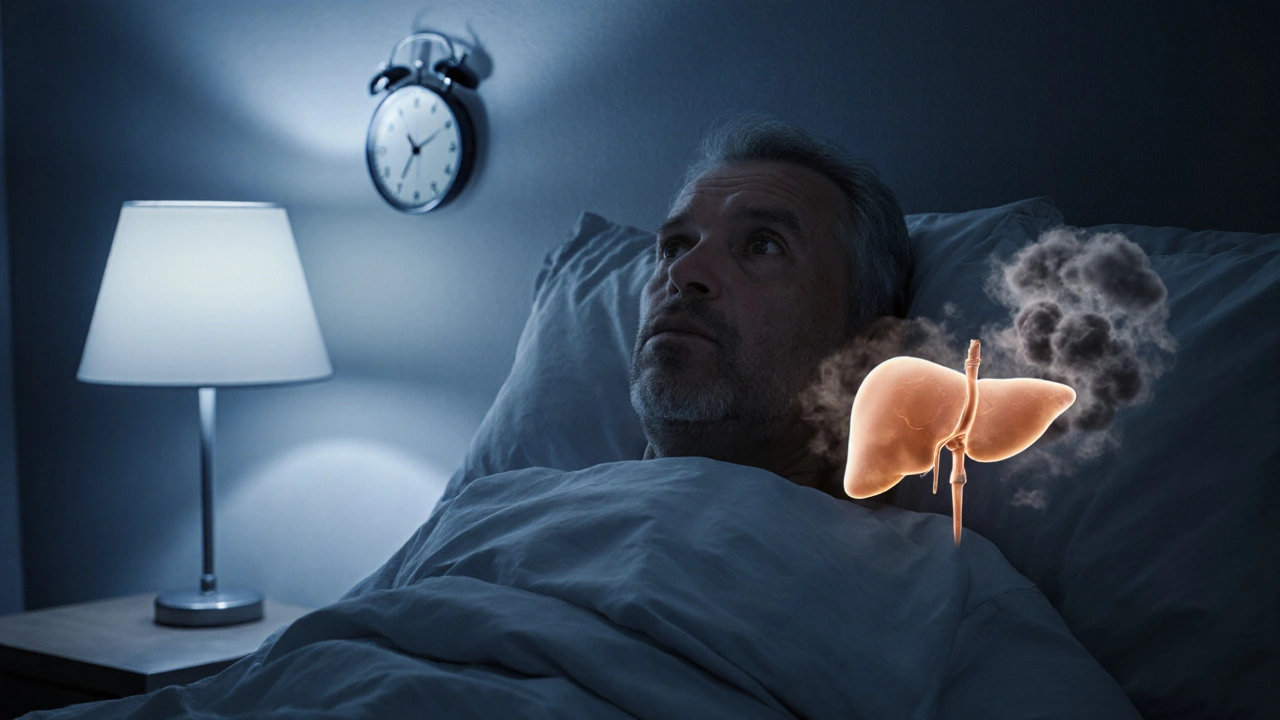Hepatic Encephalopathy: Causes, Symptoms, and Treatment Options
When your liver can’t clean toxins from your blood, those toxins build up and start affecting your brain—that’s hepatic encephalopathy, a brain disorder caused by severe liver damage that leads to confusion, memory loss, and even coma. Also known as liver coma, it doesn’t happen overnight. It’s usually the result of long-term liver disease like cirrhosis or acute liver failure. People with hepatitis C, heavy alcohol use, or non-alcoholic fatty liver disease are at higher risk. The key culprit? ammonia, a waste product the liver normally breaks down. When the liver fails, ammonia floods the bloodstream and reaches the brain, disrupting nerve function.
Not everyone with liver disease gets hepatic encephalopathy, but when it does show up, the signs are hard to ignore. You might feel unusually sleepy, have trouble focusing, or forget simple things like your phone number. Speech can become slurred. Hands might shake in a strange way—called asterixis. In severe cases, people slip into confusion or even unconsciousness. These aren’t just "getting old" symptoms. They’re red flags that your liver is overwhelmed. portal hypertension, high blood pressure in the veins leading to the liver, often plays a role too. It forces blood to bypass the liver entirely, letting toxins slip straight into your brain without being filtered. Triggers like infections, constipation, dehydration, or too much protein can make it worse fast.
Doctors test for it by checking ammonia levels, doing brain scans, and ruling out other causes like stroke or drug overdose. Treatment isn’t about fixing the liver overnight—it’s about reducing the toxins that are already in your system. Lactulose, a sugar solution, pulls ammonia out of your gut. Antibiotics like rifaximin kill gut bacteria that produce ammonia. Diet matters too: too much protein can backfire, but too little leaves you weak. Finding the right balance is key. For some, a liver transplant is the only long-term fix. But many people manage it for years with the right meds, diet, and regular checkups.
What you’ll find in the posts below isn’t just theory—it’s real-world guidance from people who’ve lived with this condition, doctors who treat it, and experts who’ve studied how to slow it down. You’ll see how medications like lactulose work in practice, what foods help or hurt, and how to spot early warning signs before things get serious. There’s no magic cure, but with the right info, you can take control.

Liver Failure & Sleep: Causes, Symptoms & Practical Tips
Learn how liver failure disrupts sleep, the role of ammonia and melatonin, and practical steps to restore rest while protecting liver health.
October 7 2025